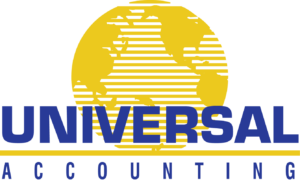A Low Percentage of Tax Returns Are Audited

ALL Tax Returns Are Checked (not necessarily Audited)
This low percentage of audits performed should certainly not lull you into a sense of security. While a correspondence audit or “office audit” (audits that typically take place in an IRS office) are somewhat uncommon, know that ALL tax returns are checked by computer for math errors. It also knows exactly how much income that employers or those that you contracted with have reported as payment to you. Since this is one of the few facts that they absolutely can check, make sure that you are completely accurate and complete in reporting these figures.
In An Audit, Only Disclose What You Must
While you want to be completely honest if you ever are called into a tax audit, know that volunteering information that auditors do not ask for may complicate and lengthen the audit process. Even if you have nothing to hide, you may have overlooked something and the chances are good that the auditor may not catch it if you don’t call attention to it. Do not be evasive, as this will be a clue to the auditor that you are trying to hide something, and they are more likely to pursue the issue. IRS agents are trained to pause in conversation on purpose. Those that are nervous or trying to hide things will often disclose clues that they did not intend to to fill an uncomfortable silence. As long as you have been honest and competent in reporting your taxes, try not to be nervous. Just don’t fall into the trap of thinking that only the guilty have something to fear and that you can talk openly and freely without possible recourse. If what you say casts doubt in the auditor’s mind, you will make the audit last longer and delve deeper, an unpleasantry even if you are in the right.To protect your rights and interest, you may want to have a tax attorney present or at least consult one. They will know what things to avoid discussing that might create doubt in the mind of the auditor. In fact, in many cases, if you hire a tax professional or attorney, you likely will not have to appear in person for the audit. Because tax professionals know the tricks and traps that the IRS might use, this could definitely be to your advantage. The tax auditor may very well have extensive training in tax and accounting, so you want that kind of professional training on your side as well. Getting help from a tax professional or attorney will help to level the playing field, putting you on a little more equal footing with the auditor.Click here to access our complete list of free tax articles.
Share this post: on Twitter on Facebook on Google+




